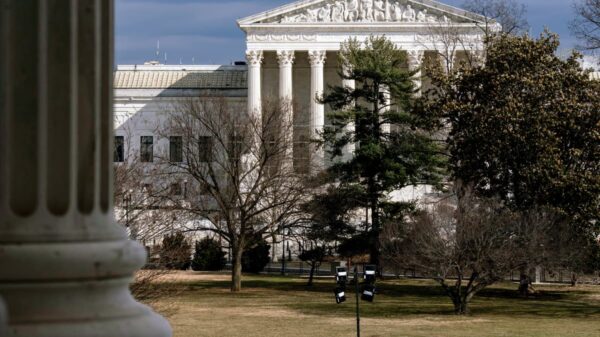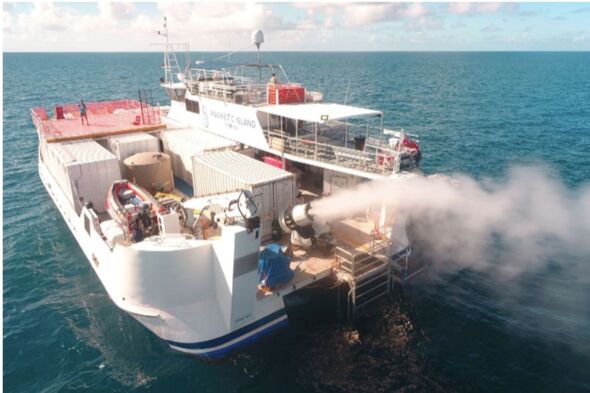UPDATE: A controversial geoengineering experiment off the coast of San Francisco Bay was abruptly halted by city officials just 20 minutes into its operation, as revealed in newly obtained documents by Politico’s E&E News. The initiative, led by researchers from the University of Washington and backed by billionaire donors, aimed to utilize a retired aircraft carrier to spray salt water into the atmosphere, creating artificial clouds over an area larger than Puerto Rico.
The ambitious project, which was projected to cost between $10 million and $20 million, sought to explore the potential of marine cloud brightening as a method to combat climate change. However, it faced immediate pushback when city officials in Alameda stated they were not informed of the experiment. The initiative, originally intended to last for months with plans to expand to regions including Chile and south-central Africa, was quickly shut down.
According to the documents, researchers had hoped to demonstrate the feasibility of cloud-manufacturing technology that could produce measurable changes visible from space. “At such scales, meaningful changes in clouds will be readily detectable from space,” noted a research plan from the university’s Marine Cloud Brightening Program (MCB).
Critics have raised concerns over the implications of solar geoengineering, which aims to reflect sunlight away from Earth to mitigate global warming. Critics warn that such interventions could disrupt weather patterns, affecting agriculture and wildlife, leading to increasing political scrutiny. U.S. lawmakers like Rep. Marjorie Taylor Greene have even linked geoengineering to climate disasters, introducing measures to criminalize its use. Meanwhile, Florida Governor Ron DeSantis has signed laws prohibiting the release of chemicals into the atmosphere for climate manipulation.
In a statement, Sarah Doherty, leader of the MCB program, clarified that the program does not endorse or develop plans for geoengineering. The project’s secretive nature, combined with skepticism from parts of the scientific community, has fueled conspiracy theories and hindered its potential for government support.
Despite opposition, some scientists argue that the growing threats of climate change necessitate continued research into such technologies. “We need to complement a rapid energy transition with more research into a broad range of potential climate solutions,” stated Chris Larsen, a key donor to the initiative.
As the debate continues, over 575 scientists have called for a total ban on geoengineering research, citing concerns about global governance and ethical implications. The project’s abrupt termination raises critical questions about the future of geoengineering initiatives and their acceptance within both the scientific community and the public.
Next steps remain uncertain as stakeholders await further developments. The Mirror has reached out to MCB project leaders and funding partners for additional comments, but the urgency of climate action remains paramount amidst rising political and social tensions surrounding the issue.






































































